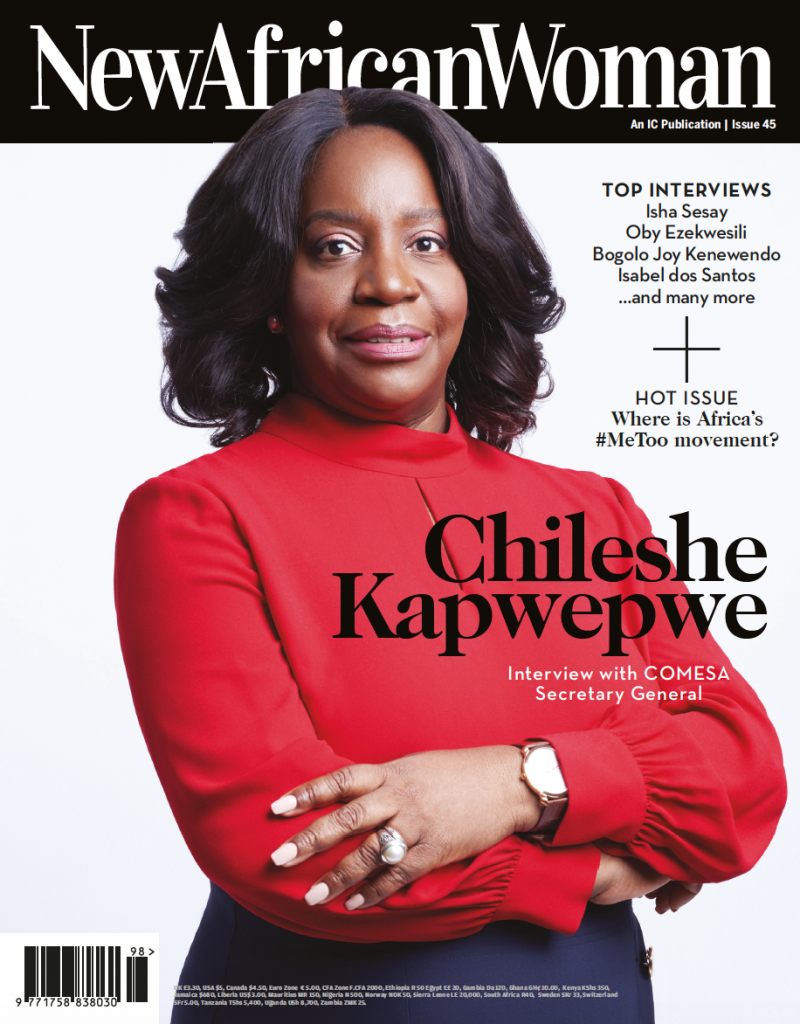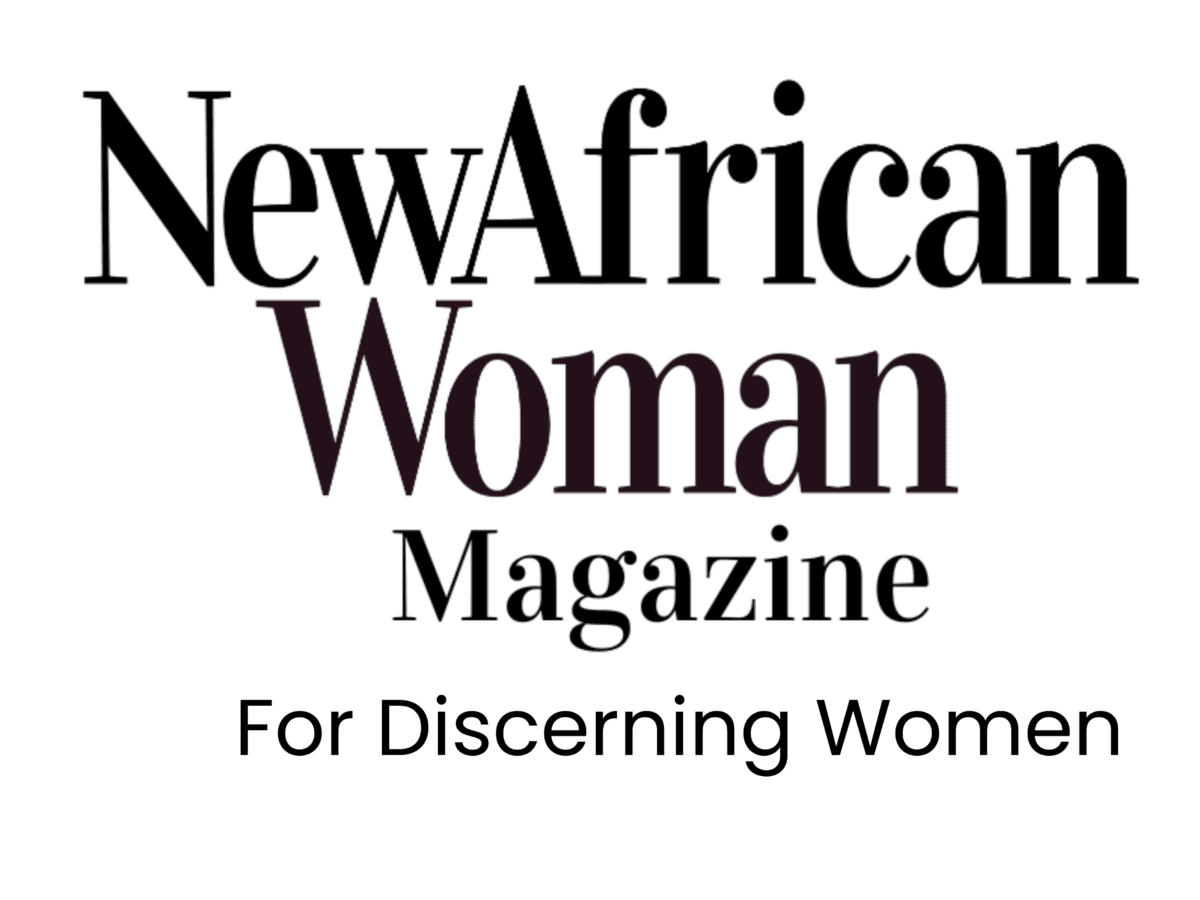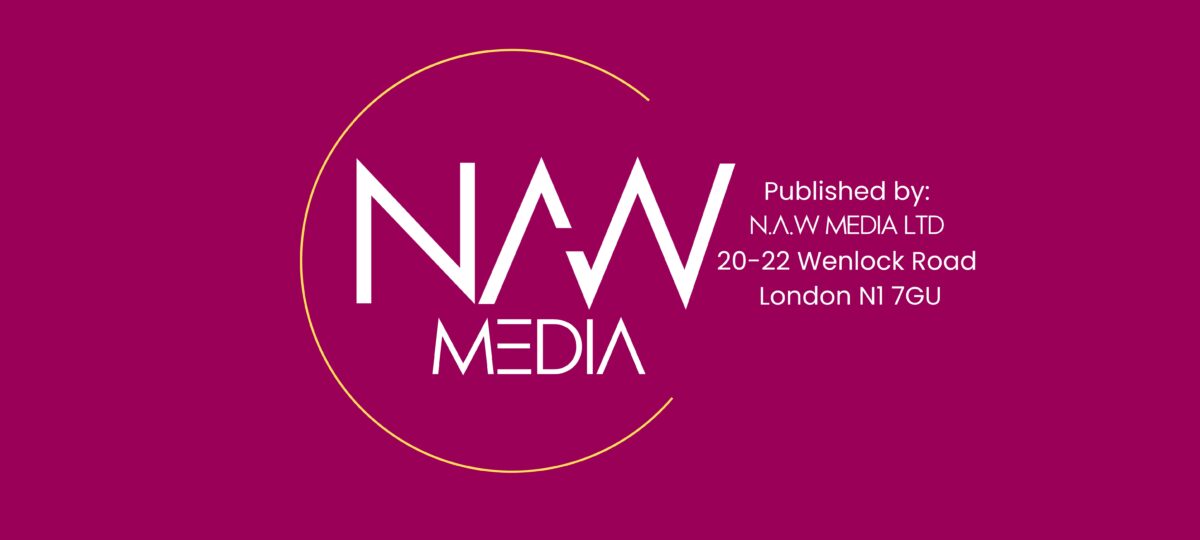Interview: COMESA Secretary General – Chileshe Kapwepwe

Editor - NAW
Zambia’s Chileshe Mpundu Kapwepwe became secretary general of the Common Market for Eastern and Southern Africa (COMESA) in July 2018 – the first woman to head the 21-Member State economic regional grouping since its formation in 1994. She is a former executive director of the International Monetary Fund, representing 23 African countries, and a former deputy finance minister of Zambia. She brings to COMESA a strong leadership record in areas of business and finance with a solid slant towards economic development, policy formulation and implementation. In this interview with our editor, she discusses a broad range of issues including her vision for COMESA and the need for more women to hold positions of power – based on merit and capability – for them to positively contribute to enhancing Africa’s prosperity.
Interview by reGina Jane Jere
NAW: You have had an illustrious career, including the corporate and finance world, IMF, and now as secretary general of COMESA, in charge of 21 countries. How does your current role compare to what you’ve done before?
Chileshe Mpundu Kapwepwe: In a way it’s very different but it also has a lot of similarities. With COMESA’s 21 Member States, it is a much wider mandate. That was also the case when I was at the International Monetary Fund representing 23 mainly English-speaking countries on the executive board. However, in comparison to the private sector, where you can have decisions made in a boardroom with very few people involved and move on, navigating the integration of 21 states is much more complicated and complex. I think my background and my previous job roles have prepared me well for what needs to be done in my new role.
You are the first female head of COMESA, joining your sister Dr Stergomena Lawrence Tax, the executive secretary at the South African Development Community (SADC). We now have two inspiring women leading two important African economic blocs. The same cannot be said of the political landscape. Are empowered women like yourselves doing enough to bring others along?
I think we have done a lot, but we still have a long way to go. Actually, one of the surprising things for me was when I took up my position as executive director on the IMF board in the US, to discover that I was the only female among 24 men on the board. We still have a lot to do, not only in Africa, but also globally. But we should applaud ourselves where we have women in these positions because in some respects we have moved up, more so in the corporate world where there is more of a level playing field than in politics. This perhaps is because in politics the chances for women to make it higher up are harder. There are just so many complex issues that come in when women are vying for positions in politics – issues that usually suppress women all the time, but not the men.
Do you feel therefore, that despite all your qualities, qualifications and capabilities, you have added pressure in your current position just because you are female? The same can be said for any woman in a higher position of power, be it in business or politics.
That is a valid question. I would say, yes. You know, when a woman gets into a position of power, even me as secretary general of COMESA, a lot of people assumed it was given to me because “it’s time a woman led COMESA”. But the facts are that I did not get into this position as a token. The position was widely advertised, and every Member State, 19 countries at the time, was free to put up candidates. I was one of five candidates who made the shortlist in an independently done process. I am in this position on merit. It was not like, “hey you have been appointed because it is time to give a woman a chance, because it is time COMESA had a woman SG”. It’s far from that.
But had it been a man taking up the same position, none of this would have come up. It is just taken on face value that men are capable and that’s why they get into these high positions. What you can achieve or what you are capable of is taken away simply because you are a woman. The assumption is always that if it’s a man, he will succeed and a woman will struggle and fail. This mindset needs to be changed and done away with.
With that in mind, do you feel you are under more pressure to prove yourself?
I think it is not a case of proving myself as a woman, but it’s proving myself because I am a human being who has been given a task, and the challenge is to show that I am capable of doing the job. The skills and abilities anyone brings to a job are what matter, not because you are a man or woman. But then unfortunately, there is always this wrong assumption that a man will probably do a better job. However, this is increasingly being proven wrong. We have many women now leading big financial institutions, which many people never imagined a woman could lead.
The issue of empowering women has been ongoing for a long time, and there is no shortage of conferences on women’s issues. Strides may have been made, but why has this battle not been won? Why are women still encountering the stereotypes you allude to? How can all this stop?
I think by having more and more women in positions of power, women who are also succeeding in what they do. Because it is so easy to fall into these stereotypes. For example, we know cases where if a woman just raises her voice to make a point, she is often told she is hysterical or aggressive, but when a man does the same it’s accepted as being assertive. All women have to be aware of the pitfalls and these stereotypes and should equip themselves with the knowledge, experience and a lot of confidence, so that when they engage you in a discussion, they see past the woman and notice the person who is ably positioning herself and is able to deliver.
As a strong advocate of advancing women in all positions, from boardroom to politics, I however also believe that while quotas are welcome, we have to be careful not to just put women in positions for the sake of filling the quotas. We have to have women fill these positions because they are qualified and capable of doing the job. Because if they are not, then we create a situation where it’s like, “look we gave a woman a chance but she couldn’t do the job”. So we have to make sure women are ready when the quotas come, because we are able, we are capable, we are qualified and have the right skills.
As the new secretary general of COMESA, and given your solid background, what do you bring to the table of an organisation that has been running for a while? What is your vision bearing in mind a lot is changing in the regional bloc?
First of all, I believe in building on any strengths that are already there. I don’t want to come in and change everything. There are already many positive strengths that I can build on, but also I have to bring in my own values and style as well as my own way of doing things, which I think is important. Therefore there will be some continuity. But my own set of values, which been very consistent in all the jobs that I have done before, even when I was in the private sector, will play a role. I value integrity, fairness and consistency. I also believe in treating people fairly. It is also key to value, engage and get to know all the stakeholders involved with COMESA. I think that is a very important aspect because my job involves trying to get people to work together in integration. I totally believe, for example, that COMESA is a rule-based organisation and as such, I believe in upholding those rules and will ensure that ultimately we are all working together to deliver the objectives of COMESA, which is regional integration of the member countries.
What will be your immediate priorities? 2018 has been a big year for women’s narratives in many forms. Is there a gender-sensitisation policy within COMESA? What is the business case on gender within COMESA?
I was delighted when I came to COMESA to find that in the treaty which governs how it is run, there are two clauses dedicated to women. One is on women empowerment and the other is on gender mainstreaming. On gender mainstreaming, it is very important as Member States that we look at gender audits and see what the status is, and what can we do to increase the voice of women and girls.
So, what COMESA already has as policy on gender gives me a natural focus to push those issues, not just because I am a woman, but also because I am reinforcing what COMESA already believes in. One great example is a network that connects women entrepreneurs in different Member States, and making sure that they work together to promote their capabilities. We also have a division which looks at gender and social affairs.
Another good example is the 50 Million African Women Speak – which is a technology platform in which COMESA, ECOWAS and EAC, supported by the African Development Bank (AfDB), have come together to develop a platform where women can link with each other, share knowledge and experiences in entrepreneurship, share financial and non-financial information, movement across borders, the availability of facilities that support their trades and business, and so forth. This is very focused on women traders and how we can help facilitate their ease of doing business, which is a very exciting, important thing to do. In sum, COMESA already has a strong gender agenda and a structure, which is natural for me to pick up and keep women’s issues moving forward.
That leads me to the issue of financial inclusion – an important aspect of consolidating women’s financial and business independence. This is not the case for many African women, who still face hurdles to financial independence, beginning in the home where their spouse controls the finances. What is your view on financial inclusion?
I think that issue starts with education, because you can only empower women financially once they are educated. They need to be empowered with knowledge, be given resources including training, to sharpen their capabilities. And by that I mean at all levels – even at the most basic level. For example, if a woman is trying to set up a small stall, it is important to empower them with some financial literacy.
There are many practical financial solutions these days which can help women at the most basic levels. For example, I recently visited a member country where they have a mobile solution where women have been empowered by giving them small credit, which they use to buy market goods, sell them at a profit and eventually build a stronger credit track record. This is just one small example of a practical solution that can be replicated at a broader level and be built on.
Solutions don’t just lie in the boardrooms run by managers, they can start from the grassroots. And solutions that are technology-based are great because you can reach more people. Once women are able to have this strong base, they will have a much stronger voice to speak up against exclusion.
Women’s empowerment is a political issue – how can the political arena help enhance this narrative?
I think there have to be more deliberate policies where Member States create the frameworks and structures that allow women to thrive. At COMESA, we are coming up with a programme which will look at helping small-scale cross-border traders, the majority of whom are women. My belief is that where there are programmes supporting women in more practical ways, in terms of policy, deliberate structures and frameworks that enhance their commercial activities or financial inclusion, access to credit and more, the result is that women do even better and succeed at all levels of society.
As someone who has travelled and worked internationally, what global benchmarks are you inspired by, not only on gender, but also as a leader?
I think first, we need to focus a little bit more on statistics, because you can only ably respond to an issue if you have all the knowledge. Therefore, segregating statistics, for example into gender, so that I know and I am aware where and in which areas, for example, women are totally underrepresented, then I would be in a position to argue as to why we need to do certain things and bring in policies that tackle the issue. Any leader needs to have the knowledge base and be well informed. We have Member States within COMESA who have done very well and we can look into their statistics and learn from them.
And without even looking further, I think Africa has done quite well and we can build on that in terms of how some Africans are doing well in gender empowerment. Sometimes we do not give ourselves much credit, but we can build on what we have and look into the areas where we are not doing so well and find out why gender representation in those areas is low, find what the constraints are and work on removing those constraints.
How do you inspire the next generation of African youth, more so girls who don’t see many women in positions such as the one you hold? What message do you have for them?
Firstly, the sky is the limit. They should believe in themselves, but also they should equip themselves with quality skills and education. They have to be aware that they cannot just dream and hope it happens. They need to be ready and equipped with the right skills when that big opportunity comes calling.
From the COMESA perspective we do have a framework, which raises youth training capacities, as well as innovation and technology, because these are crucial in today’s world. And as such we are also working on setting up a virtual university – to help collapse the distances and reach more youth and enhance their innovation and technology skills. So that is in the pipeline at COMESA, and it will be an exciting project for our youth in the region, boys and girls, to support their innovative ideas and help bring them to fruition.
From my personal view, I am also a great believer in mentoring – I am a natural mentor to girls because I have three daughters. I believe these young girls and women not only need role models they can look up to, but someone they are able to talk to. I have been involved in mentoring previously, except now I have time constraints because of my current position. But I think it is important for all women who have succeeded and achieved in their own right, to find the time to mentor and create reality for this future generation.
Finally, many women are judged on how they juggle family and work, as if that was a hindrance. How have you balanced your work and family life?
I don’t think our juggling is a hindrance at all. As women we have our own special abilities and we are wired differently to men. It may be an extra added challenge and an additional responsibility, but if we are able to accomplish well on both sides, then it is an advantage.
I also believe that no matter at what level of your career, as a woman you have to have a good balance between your work life and your family life. I don’t think just because I am now the secretary general of COMESA I have ceased to be a mother or grandmother – that is not the case at all. Even as we juggle both worlds, we have to stay true to ourselves – remain the strong and able woman that you are – and always remember we will never turn into a man. Stay true to yourself and achieve what you need to achieve, and get your job done.
In the spirit of our New African Woman ethos, which is, “To inspire rather than impose; to expertly advise rather than dictate and to tastefully portray our diverse beauty, rather than cheapen it,” how would you describe a new African woman?
I think a new African woman is confident, assertive, brave, proud and ready to accomplish anything in any field. And the current generation, unlike in the past, have an added advantage of real-life inspirational examples of women who have achieved so much. So I hope that as we progress as new African women, scenarios such as “look we have the first woman secretary general of COMESA!” will not be so surprising but become the norm and not attract any additional attention – because it is a person that is appointed to the job, not a woman.


















